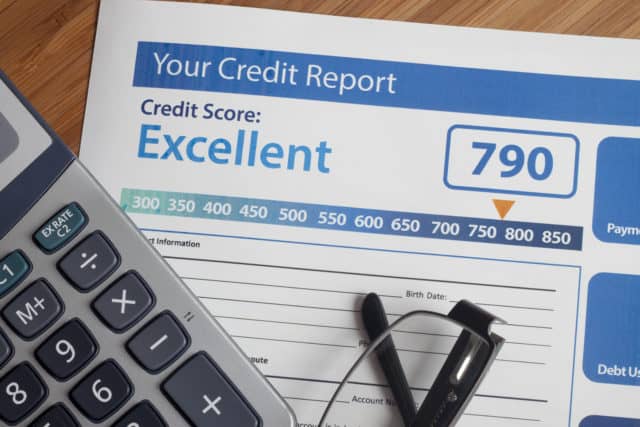To make Wealthtender free for readers, we earn money from advertisers, including financial professionals and firms that pay to be featured. This creates a conflict of interest when we favor their promotion over others. Read our editorial policy and terms of service to learn more. Wealthtender is not a client of these financial services providers.
➡️ Find a Local Advisor | 🎯 Find a Specialist Advisor

A Deeper Dive into a Familiar Question by Someone Who Has Rented, Purchased, and Rented Out Properties
Critical points missed by many analyses
I recently read a piece called “Buying vs Renting A Home (DEBUNKED),” where the author makes the case that renting is much better than buying for a variety of reasons mostly having to do with how little of your payment goes toward the principal for many years, and all the other expenses of home ownership.
As a landlord myself, I’m all for people wanting to rent, especially my properties :). However, I believe most people in most situations would do better buying their own homes.
The True Expenses of Home Ownership
Owning a home is not cheap where most of us live. Here are the biggest expenses and how much they’re likely to cost per year.
For this analysis I assume the same $360,000 mortgage at 4.25% assumed in the above-mentioned piece, but will assume a home value of $450,000 rather than the $400,000 stated there, because a 20% down-payment is a much better idea than one of 10%.
- Mortgage interest (first year, gradually dropping to zero in 30 years)— $15,183
- Property taxes (depend on jurisdiction, but say 1% of your home’s assessed value; that’s usually less than its market price but let’s use the latter anyway) — $4500
- Home insurance (depends on coverage, but say 0.25% of your home’s value) — $1125
- Maintenance and repair (depends on your luck and how well you maintain your home, but say about 1% of your home’s value) — $4500
- Utilities (depend on lots of factors, including e.g. your thermostat settings, the climate where you live, personal habits, etc. but say 0.75% of your home’s value) — $3375
Putting these all together, we come to $28,683 for the first year, with the mortgage interest decreasing gradually from year to year as you pay off your loan. In monthly terms, this is $2390 on average each month.
Since most renters pay their own utilities, we subtract that expense, leading to $25,308/year or $2109/month on average. What’s more, over time your interest payment drops, making your true annual cost lower.
Thus, if you’re planning to live in a home that costs $450,000 and can rent it for less than $2100, you should consider doing that (see below why that’s not likely to happen).
Payment against Principal is not an Expense
Another matter is the portion of your monthly payments that goes to reduce your outstanding principal. This is not an expense! It does affect your cashflow and needs to be covered each month, but it’s really a self-imposed investment in real estate, specifically in your home’s equity.
Payment against Principal is not an expense. It does affect your cashflow and needs to be covered each month, but it’s really a self-imposed investment in real estate, specifically in your home’s equity.
Why Costs Should (almost) Never be Seen as an Argument Against Buying
Clearly, owning a home isn’t cheap where most people live in the US. However, there are two critical points that most analyses miss when they argue that those expenses are a reason to not buy.
First, your choice isn’t whether or not to pay for housing by buying a home. Your real choice is between buying a home or renting it.
Second, and far more important, there’s another party to the rental lease, the owner, who’s in this as a business.
Unless you think he’s inept (usually not a good bet), he already calculated all his costs, added the impact of principal repayment on his cashflow, tacked on a healthy 10–20% (or 50–100%) profit margin, and used all that to figure your rent.
This means that when you rent, you don’t avoid paying the expenses of home ownership or the cashflow burden of paying down the mortgage principal. You’re simply paying all of it for your landlord through your rent.
When you rent, you don’t avoid paying the expenses of home ownership or the cashflow burden of paying down the mortgage principal. You’re simply paying all of it for your landlord through your rent.
When Buying a Home is a Bad Idea
As is true for every aspect of personal finance, it depends on your individual circumstances. Here are the main situations when buying a home is a bad idea, and potentially a disastrous one.
- You can’t afford a 20% down-payment — mortgage interest can jump significantly if you can’t put down 20% of your own money. Do yourself a favor and don’t buy a home that’s so expensive you can’t afford a 20% down payment.
- Your income is not stable enough or high enough to afford the mortgage payment and other expenses of home ownership — the worst thing you can do to yourself financially (well, you can do worse but this is pretty bad) is to pay $90,000 or more down-payment and then lose it to repossession.
- You’re not likely to stay in one place for more than 5 years — selling a home costs a lot, with 5–6% going to real estate agents, 1% or more to taxes, etc. so if you have to sell after 2–3 years, it vastly increases your effective annual costs of home ownership.
- Your credit score is too low — with a low credit score you can’t get a mortgage with a reasonable interest rate, dramatically increasing your interest costs.
- Your local market (temporarily) favors renting over buying — especially when home prices increase rapidly, rents take time to catch up, so the costs of renting are temporarily lower than the costs of buying.
- You can rent a smaller and cheaper place for a while — if you’re single, or married without kids, you can rent a small place in a neighborhood where the schools aren’t so great, at least for a while. If you buy there, you’ll likely want to move as soon as you start having kids, so you may want to hold off on buying until then.
Other Considerations
There are several other considerations that may affect your decision.
- Flexibility — buying a home is a long-term commitment. If your employer moves you to another city, you may be forced to choose between selling your home or losing your job. Point for renting.
- Potential appreciation — real estate prices can occasionally drop, sometimes dramatically as we saw in the real estate crash of 2007–2012. On the other hand, they can also rise like a rocket. For example, in 2000, I bought a home for double what the seller paid four years earlier. Five years later I sold for double what I had paid. That house appreciated 4-fold in nine years, for an average appreciation of 17%/year, or 14%/year faster than inflation! While this is somewhat unusual, real estate does tend to outpace inflation at least slightly. Point for buying (most of the time).
- Predictability — if you use a 30-year fixed-rate mortgage (the most popular type in the US by far), you know exactly what you’ll pay each month for the next 30 years. If you rent, your rent can increase each time you renew the lease. You can certainly move out, but having moved more than once per year for a decade while I was in school, I can tell you that’s a huge hassle, gets expensive if you need to hire a mover, and if the new proposed rent matches current market conditions, you may not find as good a place for less. Point for buying.
- Tax deduction — if you’re in a high tax bracket when considering federal, state, and local taxes, you may be able to deduct the interest on your mortgage. This means that, in effect, Uncle Sam pays part of your interest cost, reducing your cost of home ownership. Point for buying.
- Forced savings — when you pay down your mortgage principal, you’re building a financial asset in the form of gradually increased home equity. If you’re as challenged as most of us in setting money aside, this is an easy way to build your net worth, because it only takes one big decision when buying, rather than following a budget every minute of every day. Massive point for buying.
The Bottom Line
Analyses that cite the high costs of home ownership as an argument against home ownership miss several critical points. Most importantly, that the landlord sets your rent based on his costs of ownership, plus a profit margin. Thus, you don’t avoid those costs by renting. You simply pay them for someone else, and have nothing left to show for it in the long run.
While there are circumstances when buying a home is a bad idea, in most cases, if you can afford it, it’s much better than renting long-term.
Have you asked yourself if you’d be better off buying or renting? What were your considerations?
Are you ready to enjoy life more with less money stress?
Sign up to receive weekly insights from Wealthtender with useful money tips and fresh ideas to help you achieve your financial goals.
Disclaimer: This article is intended for informational purposes only, and should not be considered financial advice. You should consult a financial professional before making any major financial decisions.

About the Author
Opher Ganel, Ph.D.
My career has had many unpredictable twists and turns. A MSc in theoretical physics, PhD in experimental high-energy physics, postdoc in particle detector R&D, research position in experimental cosmic-ray physics (including a couple of visits to Antarctica), a brief stint at a small engineering services company supporting NASA, followed by starting my own small consulting practice supporting NASA projects and programs. Along the way, I started other micro businesses and helped my wife start and grow her own Marriage and Family Therapy practice. Now, I use all these experiences to also offer financial strategy services to help independent professionals achieve their personal and business finance goals. Connect with me on my own site: OpherGanel.com and/or follow my Medium publication: medium.com/financial-strategy/.
Learn More About Opher
To make Wealthtender free for readers, we earn money from advertisers, including financial professionals and firms that pay to be featured. This creates a conflict of interest when we favor their promotion over others. Read our editorial policy and terms of service to learn more. Wealthtender is not a client of these financial services providers.
➡️ Find a Local Advisor | 🎯 Find a Specialist Advisor






